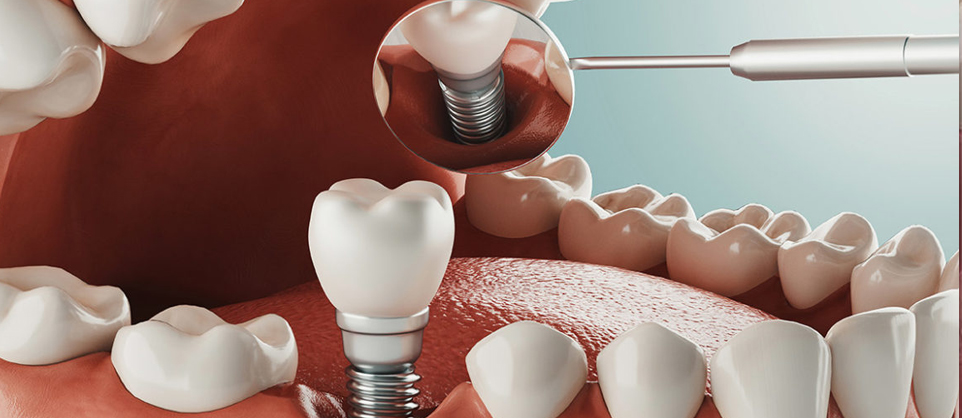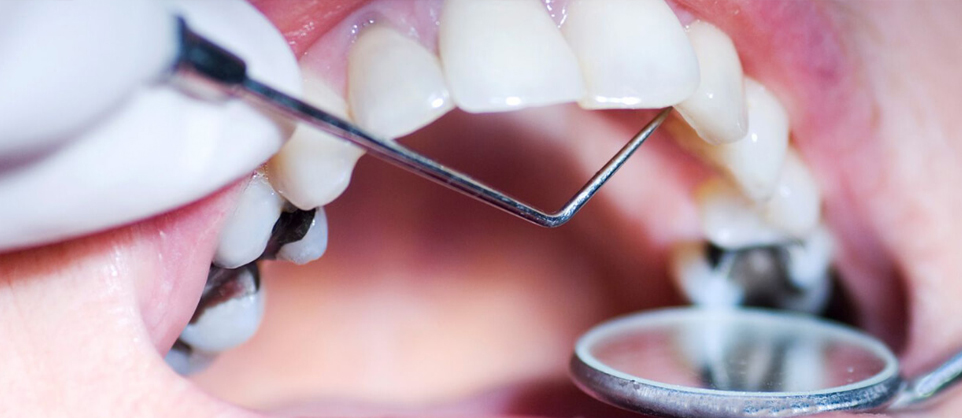


If you have lost a tooth you are the right person for a dental implant. However, as there are some conditions and diseases that can affect whether dental implants are right for you. For example, uncontrolled diabetes, cancer, radiation to the jaws, smoking, alcoholism, or uncontrolled periodontal (gum) disease may affect whether dental implants will fuse to your bone. It is important to let your dental surgeon know all about your medical status (past and present) together with all medications you are taking, whether prescribed, alternative (herbal) or over the counter.
A dental implant is composed of 3 parts: the titanium implant, the abutment, which fits over the portion of the implant that protrudes from the gum line; and the crown, which is created by a prosthodontist or restorative dentist and fitted onto the abutment for a natural appearance that fuses with the jawbone.
There are many advantages to dental implants, including:
In most cases, anyone healthy enough to undergo a routine dental extraction or oral surgery can have a dental implant. Patients should have healthy gums and enough bone to hold the implant. They also must be committed to good oral hygiene and regular dental visits. Heavy smokers, people suffering from diabetes or heart disease need to be evaluated on an individual basis. If you are considering implants, you can talk to one of our dentists to see if they are right for you.
The first step in the dental implant process is the development of an individualized treatment plan. The plan addresses your specific needs and is prepared by a team of professionals who are specially trained and experienced in oral surgery and restorative dentistry. This team approach provides coordinated care based on the implant option that is best for you.
Next, the tooth root implant, which is a small post made of titanium, is placed into the bone socket of the missing tooth. As the jawbone heals, it grows around the implanted metal post, anchoring it securely in the jaw. The healing process can take from six to 12 weeks. Once the implant has bonded to the jawbone, a small connector post called an abutment is attached to the post to securely hold the new tooth. To make the new tooth, your dentist makes impressions of your teeth, and creates a model of your bite (which captures all of your teeth, their type, and arrangement). The new tooth is based on this model. A replacement tooth, called a crown, is then attached to the abutment.
Instead of one or more individual crowns, some patients may have attachments placed on the implant that retain and support a removable denture.
Your dentist also will match the color of the new teeth to your natural teeth. Because the implant is secured within the jawbone, the replacement teeth look, feel and function just like your own natural teeth.

Apicoectomy or a root end surgery, root resection, retrograde root canal treatment or root-end filling, is an endodontic surgical procedure whereby a tooth's root tip is removed and a root end cavity is prepared and filled with a biocompatible material. Wisdom teeth extraction is a surgical procedure to remove the end of a tooth root in endodontic therapy. At Empire Dental Center the wisdom teeth is removed within a very short time and 0 pain guaranteed! The procedure is done at the clinic under local anesthesia. If you have any infections, surgery will usually be delayed until the infection has cleared up by taking antibiotics. Before removing a wisdom tooth, the doctor will give you a local anesthetic to numb the area where the tooth will be removed. To remove the wisdom tooth, the gum tissue over the tooth will be open and than take out any bone that is covering the tooth. We will separate the tissue connecting the tooth to the bone and then remove the tooth. Sometimes we will cut the tooth into smaller pieces to make it easier to remove.
After the tooth is removed, you may need stitches. Some stitches dissolve over time and some have to be removed after few days. A folded cotton gauze pad placed over the wound will help stop the bleeding.
A wisdom tooth is extracted to correct an actual problem or to prevent problems that may come up in the future. Some of the problems that can occur when wisdom teeth come in are:
In most cases, the recovery period lasts only a few days. Take painkillers as prescribed , The following tips will help speed your recovery.
Wisdom tooth removal usually is effective in preventing:
Copyright © 2021 EMPIRE Dental Center. All rights reserved | Powered by Chrisans Solutions